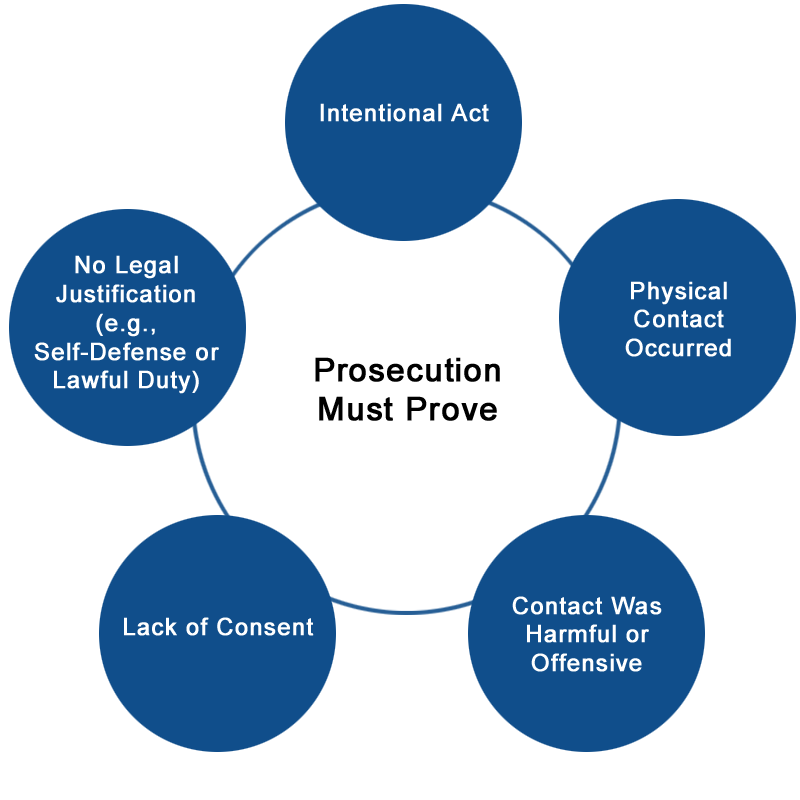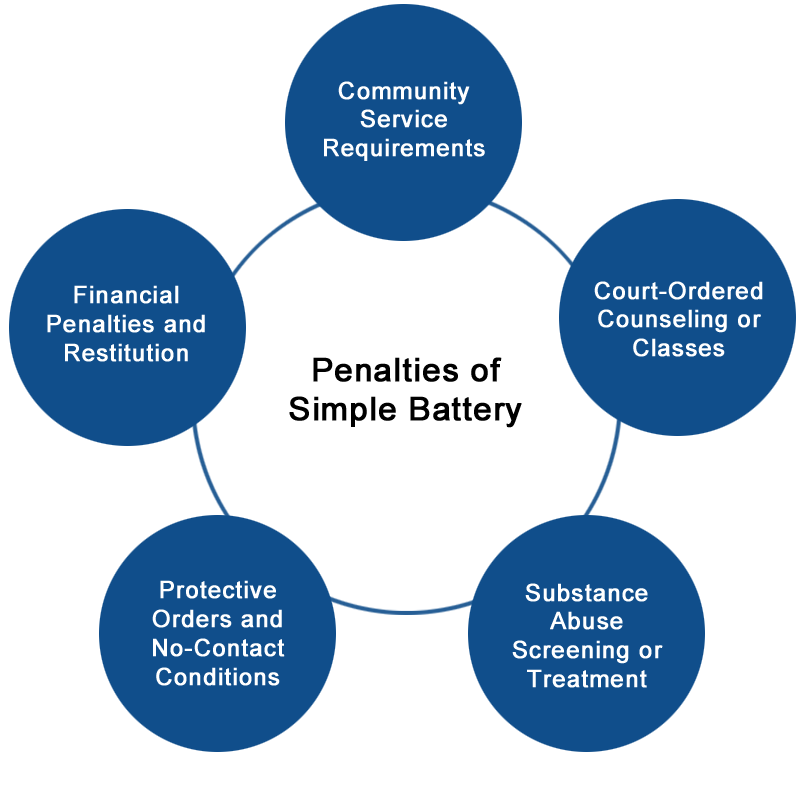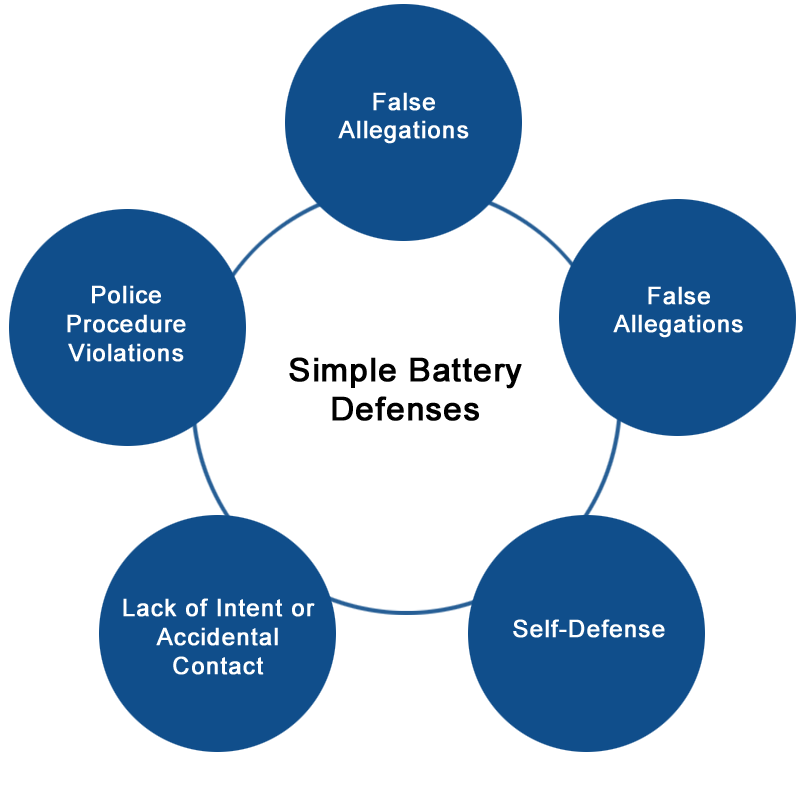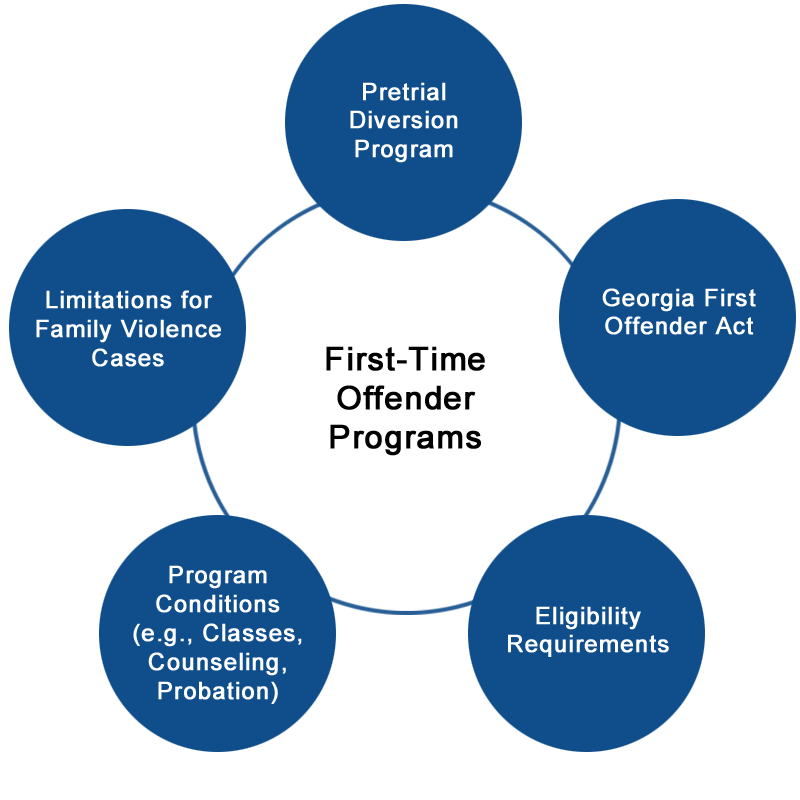To better understand the legal term “simple battery” as it’s used in Georgia law, it’s helpful to break this phrase down into its component parts. In the legal sense, Simple just means that the infraction is being considered as the lowest level of infraction under the law. Here, we mean battery in which there was no weapon involved, no serious violence, and no lasting injuries—just direct physical contact without aggression or inappropriate intent. Battery is a common legal term referring to any nonconsensual physical contact intended to cause pain or offense.

So, when you put them together, you have Simple Battery, an intentional act of physical contact that causes pain, anger or emotional damage to another person without their consent. Considered a crime under O.C.G.A. § 16-5-23.1 of Georgia law, a person can be charged with Simple Battery for a variety of reasons, such as:
- Escalating an argument by shoving another person
- Physically grabbing or poking someone, even if only to make a point
- A light slap across the face
- Spitting on another person
If the contact was purposeful, the other person didn’t want that contact, and it was deemed disrespectful, upsetting or hurtful, it could be considered criminal Simple Battery, even if the action doesn’t leave a mark.
There are essentially two types of Simple Battery. The first is harmful contact, e.g., a slap, punch or shove that causes even minor pain or discomfort. The second is offensive or provoking contact, such as spitting on someone or poking them with a finger in order to provoke a response, annoy them or insult them.
A conviction of Simple Battery requires the prosecution to prove several things:
- That the act was intentional, with the person meaning to make contact.
- That actual contact occurred, even if it didn’t cause pain or injury.
- That the contact was considered harmful, offensive or insulting by the victim.
- There was no legal reason, such as self-defense or a police officer acting in the line of duty for the contact.
Essentially, if you intentionally touch someone or otherwise make contact with them without their consent, and they consider it aggressive or offensive, you could face a criminal charge of Simple Battery.
Simple Battery – Family Violence
A separate charge exists under Georgia’s Family Violence Act called Simple Battery-Family Violence. In order for this charge to apply, the alleged victim must be a member of the perpetrator’s family or household. This can mean blood relatives, e.g., a parent or a child, or it could simply be a person who shares the accused’s family or home, such as a current or former spouse, co-parent, stepparent, stepchild, foster parent or foster child.
If the incident includes anyone who falls under that qualifying relationship, the charges will fall under the state’s domestic violence laws, rather than being treated as a simple misdemeanor.
Simple Battery – High and Aggravated Misdemeanor
While Simple Battery is considered a misdemeanor, these charges can be elevated to a “high and aggravated misdemeanor,” in cases where the victim is part of a protected group. These include the elderly, pregnant women, employees of schools, public transit, or sporting events; on-duty law enforcement or correction officers; or members of the family or household. As an elevated misdemeanor, this charge will carry significantly higher penalties as well as greater long-term ramifications.

The Penalties and Consequences of Simple Battery in Georgia
As mentioned, Simple Battery is considered a misdemeanor under Georgia law. This carries with it a jail sentence of up to 12 months and fines up to $1,000. In certain cases, the judge may decide to place the defendant on supervised probation for up to 12 months instead of jail time. Even those not convicted will still have the arrest on their permanent record, which will be visible on background checks, unless they qualify for a record restriction.
In addition to the fines and jail time outlined above, there are several additional penalties that could be imposed based on the judge’s discretion. These include:
- Community service ranging from 40-120 hours, often issued as part of a probation or plea bargain.
- Anger management or conflict resolution classes, which are often mandated for those charged in domestic cases or incidents that were highly emotional.
- Drug and alcohol screening or treatment in cases where the incident involved illicit substances or intoxication.
- Mental health counseling, which can include individual therapy, behavioral counseling or a 24-week Family Violence Intervention Program (FVIP) in family violence cases.
- Orders barring the defendant from making contact with the victim, such as a Temporary Protective Order (TPO) or an edict banning them from the victim’s home, workplace or school.
- Payment of restitution to the victims, such as medical bills, lost wages, property damage or expenses for counseling.
- Additional fees such as court costs, payment for probation, drug tests and counseling, or monthly supervision fees of $30-$50 a month.
Some or all of the above penalties could apply in cases where the defendant is charged with Simple Battery. If the charges are elevated to a “misdemeanor of a high and aggravated nature,” conviction will carry fines of up to $5,000. Simple Battery could also be charged as a felony in the case of a second offense or a violation of the Family Violence Act.
The more serious nature of these charges carries greater long-term consequences from a conviction, including a permanent mark on your criminal record, loss of gun rights, and decreased consideration in child custody or divorce cases.

Defending Against Simple Battery Charges
While prosecutors tend to pursue Simple Battery charges vigorously, owing to the serious nature of the crime, there are several ways to have your charges acquitted, dismissed, or just reduced. In certain cases, a skilled attorney could seek a lesser charge of disorderly conduct or affray. A few more successful strategies include:
Claiming False Allegations: This involves presenting evidence showing inconsistencies in the accuser’s story that imply the accusations were made out of revenge, anger, or to gain the upper hand in a conflict.
Citing Lack of Evidence: The burden lies on the prosecution to prove guilt beyond a reasonable doubt, which can be difficult or impossible without video evidence, credible witnesses or other physical evidence.
Proving Self-Defense: Acting to protect yourself or others is one way to claim legal protection against prosecution, if it can be proved through witness testimony, bodycam footage or prior history. It must be shown, though, that you only used the necessary amount of force to negate the threat you faced.
Establishing Lack of Intent: In order to be considered Simple Battery, the contact in question must have been intentional. Showing that the contact was minor, accidental, or a result of mutual combat could keep it from meeting this legal standard.
Highlighting Law Enforcement Errors: There are strict procedural rules that police must follow in investigating and arresting someone for simple battery. If they showed bias, violated your constitutional rights through illegal search and seizure, or failed to read your Miranda Rights, evidence could be suppressed, or the case could be dismissed altogether.

Options for First Offenders
Georgia law does offer alternatives to conviction for first-time offenders, depending on the circumstances of their case. Referred to as Pretrial Diversion and First Offender Sentencing, these can help avoid a permanent conviction if the requirements set by the court are met. These are generally available to first offenders in cases that didn’t involve serious injury or prior convictions.
Under pretrial diversion, which is generally offered to those facing non-violent charges and who have no prior convictions, the court will lay out certain requirements that must be completed for charges to be dismissed or for records to be expunged. These requirements may include completion of community service, drug or alcohol screening, anger management classes and avoiding further charges. Requirements for these programs vary from county to county.
Another option, Georgia’s First Offender Act, allows a judge to sentence an individual without officially entering a conviction. To qualify, the defendant must first plead guilty, then successfully complete all conditions imposed on them, potentially including probation, drug screening and counseling. If they are successful, the case is discharged, and the conviction does not legally exist. If not, they can face full conviction and a jail sentence.
Pretrial diversion is typically not available in cases that have been classified as Simple Battery – Family Violence, depending on the county. However, First Offender Sentencing may be available with additional requirements such as a no-contact order or mandatory counseling.
How Zeliff | Watson Can Help
At Zeliff | Watson, we make it our top priority to protect your rights. An accusation is not a conviction, and we fight every step of the way to keep it from becoming one, ensuring your permanent record stays clean. It all begins when you meet us under the protection of attorney-client privilege for a free, no-obligation legal consultation during which we will review the facts of your case. After that, we launch into a thorough investigation of the evidence, locating witnesses, analyzing police reports, reviewing bodycam footage, challenging every piece of evidence against you and revisiting the scene of the alleged crime if necessary. Through these exhaustive methods, we expose the weaknesses in the prosecution’s case against you and build a robust defense to see your charges reduced, dismissed or acquitted. Call us today to schedule this free consultation.
A Simple Process to Getting Started

Schedule a Free Case Evaluation
Schedule a free, no-obligation, and confidential case consultation in person, online, or over the phone. This will help you understand how your case can be challenged, potentially leading to a reduction, dismissal, or acquittal of your charges. Click here to schedule your case evaluation.

Meet Our Defense Team and Conduct a Case Evaluation
During your free case evaluation, you’ll have the opportunity to ask questions, receive answers and legal guidance, and collaborate with our attorneys to better understand your side of the story, gather evidence, and devise a strategy to achieve the best possible outcome for your pending criminal charges.

Start Defending Your Case
After your free case evaluation, Zeliff & Watson will assist in preserving evidence and safeguarding your rights, ensuring your protection throughout the process. The defense team will also provide a proposed fee to represent your case, with the goal of achieving the best possible outcome.

